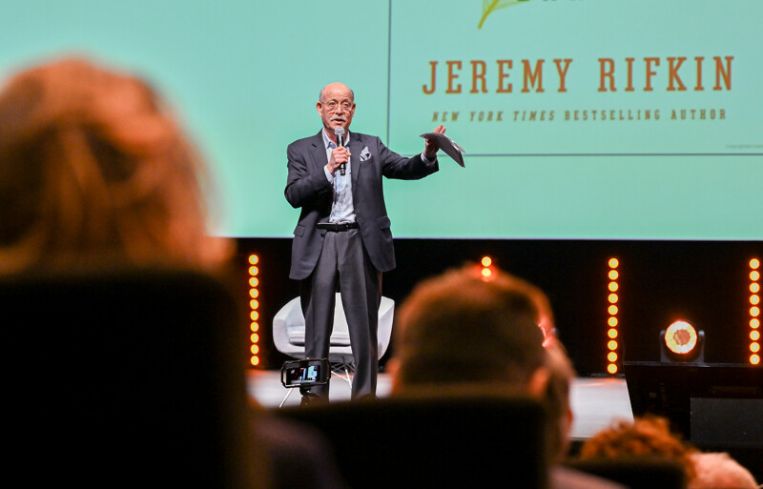All Real Estate Must Adapt in 20 Years to Resist Climate Change: Jeremy Rifkin
By Nicholas Rizzi March 14, 2023 3:20 pm
reprints
The world’s entire real estate footprint will need to be changed “in the next 20 to 30 years” to withstand climate change, according to writer and economic theorist Jeremy Rifkin.
Rifkin broke the dire news to the commercial real estate professionals gathered at the annual MIPIM convention in sunny Cannes, France, during his keynote speech on Tuesday. He said that the world is in the midst of a “third extinction” event unless drastic steps are taken to reduce humanity’s carbon footprint. As part of that, the world’s real estate needs to change.
“Every single building out there — home, office, factory — it can’t withstand climate change,” Rifkin said during his speech. “We have to retrofit every single building in the world so that it can be zero emission and that it can withstand all of the climate disasters that are coming.”
In Rifkin’s view of the future, locations need to band together by common bioregions instead of borders — since “climate disasters don’t give a damn about political boundaries” — in order to make the best policy decisions. He also said buildings would need to be ephemeral, able to get built and demolished quickly — with zero emissions — to support a migrating human population at the whim of policy disasters.
And another casualty in the future will be data centers, which have been booming in recent years. Rifkin posits data centers will become obsolete, since every other building will be equipped as a “node” and its own data center.
But Rifkin’s remit was not to paint a picture of a “Mad Max”-style, dystopian future humans will be subjected to. Instead, Rifkin said he wanted to inspire hope and cause the real estate industry to band together before it’s too late to meet these challenges head-on to preserve the species.
“You are the future — it’s real estate,” Rifkin said. “This real estate does not fit climate change; we cannot be the frog in the boiling pot.”
Rifkin argued that pension funds, developers, insurance funds and private equity can band together — either at MIPIM or at another event in the future — to start figuring out ways to “move into this new era.”
“It’s essential that … we begin to understand the importance of building stock as the centerpiece of a distributed infrastructure,” Rifkin said. “That infrastructure will allow us to be able to deal with the change that is coming on.”
Nicholas Rizzi can be reached at nrizzi@commercialobserver.com.



